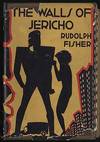
Napoleon, With this Document, Launches the Napoleonic Era: Napoleon, During the Siege of Toulon, Gathers the Munitions for the Final Assault, In a Victory that Would Commence His Career and Change the Face of the Globe Forever
- Used
- Signed
- Condition
- See description
- Seller
-
Ardmore, Pennsylvania, United States
Payment Methods Accepted
About This Item
Written just days after his first ever promotion
One of only 4 documents of Bonaparte, stretching back a century, we can find during the siege, signed with the early Italian form his signature, Buonaparte
The French Revolution had not only overthrown a monarch, it had pitted Europe against France. Austria and more distantly England saw a revolutionary France as a transcendental threat. So as Paris was engaged in a massive upheaval, it faced an ongoing state of hostilities with its neighbors. This led to a series of executive governments, the most famous of which was the Committee of Public Safety, established in April 1793, after the King had already been beheaded. In July of that year, Maximilien Robespierre was elected to the Committee; and so under his leadership began the Reign of Terror, so named because terror was in fact a policy instrument recognized by the state as an extension of the Revolution, which must be maintained at all costs. This control extended everywhere; they controlled the police and the army, and their agents went nationwide to do Robespierre’s bidding.
Among the gravest threats to the new government under Robespierre was the royalist sentiment in the South along the coast, which just so happened to be within reach of the British Royal Navy. Here, in open defiance of the Republicans, royalists hoisted the “flour de lys” flag in the fall of 1793 in the city of Toulon. By that time, French troops were already on their way to that city where they would confront 13,000 men from the combined forces of England, Spain, Naples and Piedmont. The French generals were in control of their troops, but Robespierre also sent to this key battleground his brother, Augustin, and Antoine Saliceti, a Corsican like Napoleon, and like him close to the French cause. These two were to report on the loyalties of generals, the extent of success, and to advise Paris in all matters. They had final say in the South, and in reality controlled life and death.
At the time when the siege of Toulon began, the Chief of Artillery was wounded, and since Toulon would require a strong bombardment, this deficit had to be filled. Napoleon Buonaparte (as he spelled his name then) had until then mainly been involved in provincial battles in his native Corsica. He was a relative unknown in France, and had no high title, although he had studied in the military academy there and was in service to the national army. His family had in fact fled Corsica because of its allegiance to France. In what may go down as one of the great coincidences in history, he happened to be in the area as the French gathered for the assault on Toulon and was given the command of artillery by Augustin Robespierre and Saliceti, whom he knew from Corsica. This seemingly insignificant event at the time would make his career and changed the history of Western Europe.
The siege itself began in mid September. He was dissatisfied by the sole battery—called the ""Mountain"", positioned on the height of Saint-Laurent since September 19. He established another, on the shore of Brégallion, called the ""sans-culottes"". On the first of October, after a failure of General La Poype against the ""Eastern Fort"" of Faron, Bonaparte was asked to bombard the large fort of Malbousquet, whose fall would be required to enable the capture of the city. He therefore requisitioned artillery from all of the surrounding countryside. Promoted to Chief of Battalion on October 18, he set about strengthening his battery for the great push.
Document signed, October 23, 1793, Ollioules near Toulon, signed Buonaparte, an early, Italian form of his signature, just days after being promoted to Chief of Battalion. ""Statement of the pieces of artillery and other necessary effects to complete the army for the Siege of Toulon."" The document continues us columns to note the type of weapon, what would be necessary, what they have now, and what is missing, along with any observations.
Napoleon performed with great skill and Toulon was taken, a significant defeat to the royalists and to England. Buonaparte was credited with French success. Where soldiers who failed Paris were guillotined, those who won were feted and promoted. Augustin reported back to his brother Maximilien Robespierre that Napoleon was an exceptional commander. The elder brother decided that he would be named brigadier general in December 1793.
Reviews
(Log in or Create an Account first!)
Details
- Bookseller
- The Raab Collection
(US)
- Bookseller's Inventory #
- 21827
- Title
- Napoleon, With this Document, Launches the Napoleonic Era
- Book Condition
- Used
- Date Published
- 23/10/1793
Terms of Sale
The Raab Collection
10 day return guarantee, with full refund excluding shipping costs for up to 10 days after delivery if an item is returned in original condition
About the Seller
The Raab Collection
About The Raab Collection
Glossary
Some terminology that may be used in this description includes:
- New
- A new book is a book previously not circulated to a buyer. Although a new book is typically free of any faults or defects, "new"...

